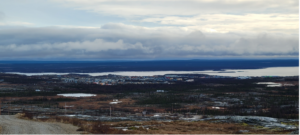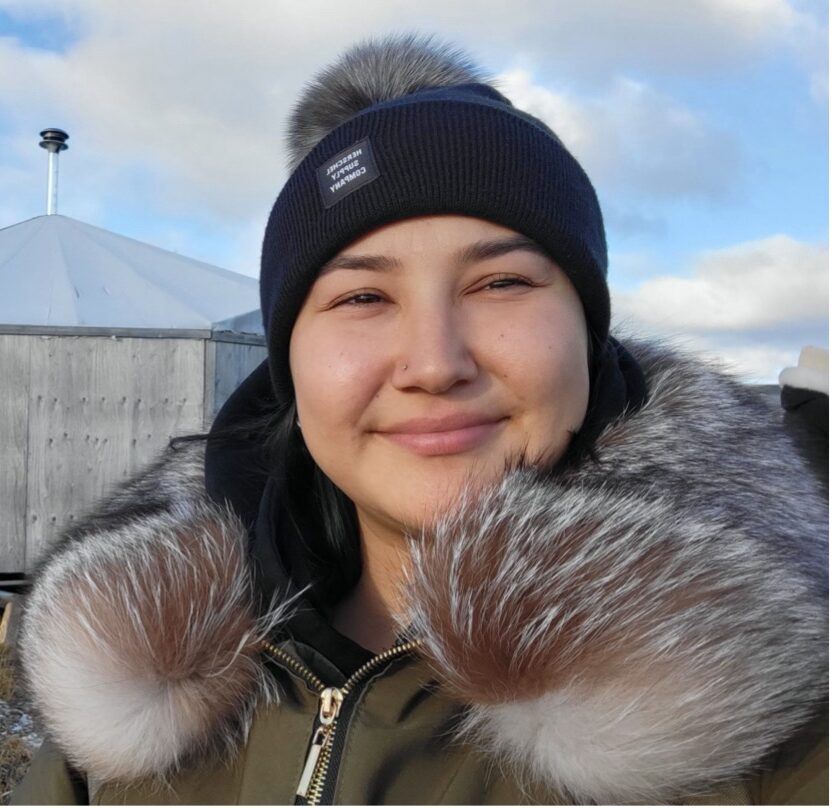Jennifer Kilabuk shares her journey building relationships in Nunavik
by kelsie kilawna
Jennifer Kilabuk is passionate about applying her Inuit teachings to honour how kinship is built within neighbouring Inuit communities. She is making waves across MakeWay, leading by example and reshaping how relationships are built in the North, particularly in Nunavik. Jenn grew up living the Inuit Ways of Knowing, which have helped her to forge meaningful connections and kinships in the North.
Jenn shares her reflections on her journey over the past year, during which she guided efforts to build relationships in Nunavik a good way. Her role at MakeWay encompasses overseeing Northern program initiatives across Inuit regions, including Inuvialuit, Nunavut, Nunavik, and Nunatsiavut. Her commitment to this role is deepened by her bond to her homelands and is evident as she discusses the ongoing projects and the need to strengthen relationships with various communities.
When taking on her position at MakeWay, Jenn says she learned that there was some difficulty in creating connections in the Inuit communities for a variety of reasons and there was a lack of relationships within Nunavik.
“I made it one of my personal goals to rectify that,” she says.
Nunavik is situated in what has been very briefly known as northern Quebec. The region is defined by its Arctic climate and vast tundra expanses, and it is made up of 14 rural and remote villages. Inuit have been caretaking their homeland responsibilities by living in close kinship with the Arctic Way of Life since the time of Creation.
Growing up amongst her people, Jenn is able to use generational teachings in all aspects of her work and life, which support her in building and strengthening relationships authentically. She began the journey of kinship building by first reaching out to those she already had built relations with.

“So, I just started messaging Facebook friends that I had met through what’s called the National Inuit Youth Summit. [I used my connections with] the people I met and made friends with and still follow on Facebook ten years later,” she says.
Jenn goes on to explain how those she connected with initially were the Youth champions of their communities and “who better to ask than [them]?”
Through the connections she built over her lifetime, she was able to build a list of organizations to connect with. One of those organizations was Isuarsivik, which invited Jenn to their open house. Once Jenn landed by plane in Nunavik, Isuarsivik organized to have her picked up from the airport, even offering to show her around the area.
“Right off the bat I thought, ‘wow,’ these guys are doing really good work, and they really value that interpersonal connection, and in their line of work it’s really important to incorporate that because that’s likely what helps success rates,” Jenn reflects.

This was the beginning of the relationship building Jenn headed up in Nunavik. From Facebook to knocking on doors, her approach is deeply tied to her dedication to upholding Inuit Ways of Knowing and reinforcing the importance of face-to-face interactions.
“Our Northern program tries to do our work as closely as possible to Indigenous Ways of Being and Doing…most of us are Indigenous and we’re from these communities, we grew up knowing what works right and what works for us.”
“I think it’s really important to show up in person…there’s so much value in connecting in person and it builds trust and being so [geographically spread out] it makes for a more productive relationship moving forward,” she shares.
Her commitment to breaking down barriers is evident as she encourages her colleagues at MakeWay and in every sector to leverage personal connections and show up authentically.
Jenn expresses her gratitude for the interest in her work and invites others to share their approaches and experiences in the philanthropic landscape. She hopes to create a collaborative environment where diverse perspectives contribute to a transformative place-based approach which calls for the use of protocol of specific place.
Jennifer Kilabuk’s story is not just one of professional inspiration and dedication but demonstrates the power of enabling Indigenous and Inuit staff to show up with their place-based understandings of community. Her journey shows us that there is power in personal connections and honouring place-based accessibility needs, and that this work is transformative when led by homeland people. This is the work Jenn commits to continue doing.
Learn more about MakeWay’s Northern Program here.
